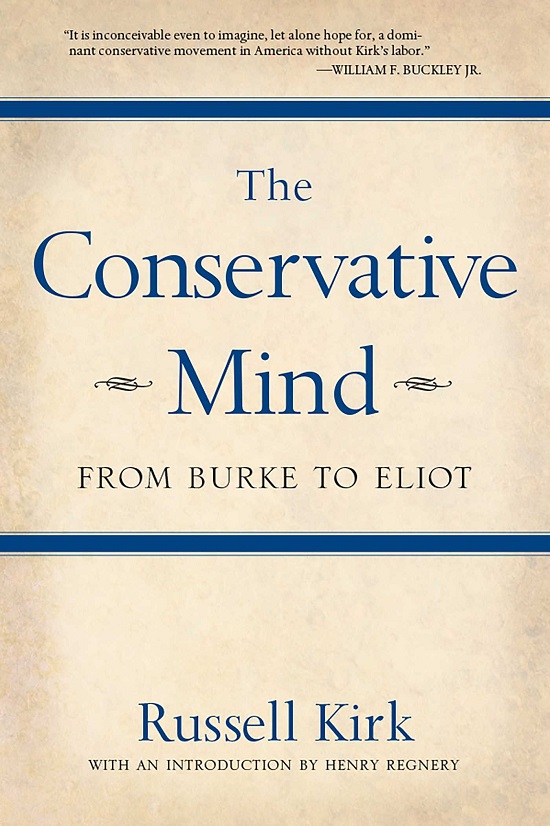In the first chapter of The Conservative Mind, Russell Kirk condenses conservative thought down to the following six canons. It is important to realize that these six canons are not merely Kirk’s opinion of what conservatism is or should be, but an historical observation of what have been common themes in conservative thinkers ever since the movement started with Edmund Burke’s response to the French Revolution.
- Belief in a transcendent order, or body of natural law, which rules society as well as conscience. Political problems, at bottom, are religious and moral problems…. True politics is the art of apprehending and applying the Justice which ought to prevail in a community of souls.
- Affection for the proliferating variety and mystery of human existence, as opposed to the narrowing uniformity, egalitarianism, and utilitarian aims of most radical systems.
 Conviction that civilized society requires orders and classes, as against the notion of a ‘classless society.’ With reason, conservatives often have been called “the party of order.” If natural distinctions are effaced among men, oligarchs fill the vacuum. Ultimate equality in the judgment of God, and equality before courts of law, are recognized by conservatives; but equality of condition, they think, means equality in servitude and boredom.
Conviction that civilized society requires orders and classes, as against the notion of a ‘classless society.’ With reason, conservatives often have been called “the party of order.” If natural distinctions are effaced among men, oligarchs fill the vacuum. Ultimate equality in the judgment of God, and equality before courts of law, are recognized by conservatives; but equality of condition, they think, means equality in servitude and boredom.- Persuasion that freedom and property are closely linked: separate property from private possession, and Leviathan becomes master of all. Economic levelling, they maintain, is not economic progress.
- Faith in prescription and distrust of ‘sophisters, calculators, and economists’ who would reconstruct society upon abstract designs. Custom, convention, and old prescriptions are checks both upon man’s anarchic impulse and upon the innovator’s lust for power.
- Recognition that change may not be salutary reform: hasty innovation may be a devouring conflagration, rather than a torch of progress. Society must alter, for prudent change is the means of social preservation; but a statesman must take Providence into his calculations, and a statesman’s chief virtue, according to Plato and Burke, is prudence.

